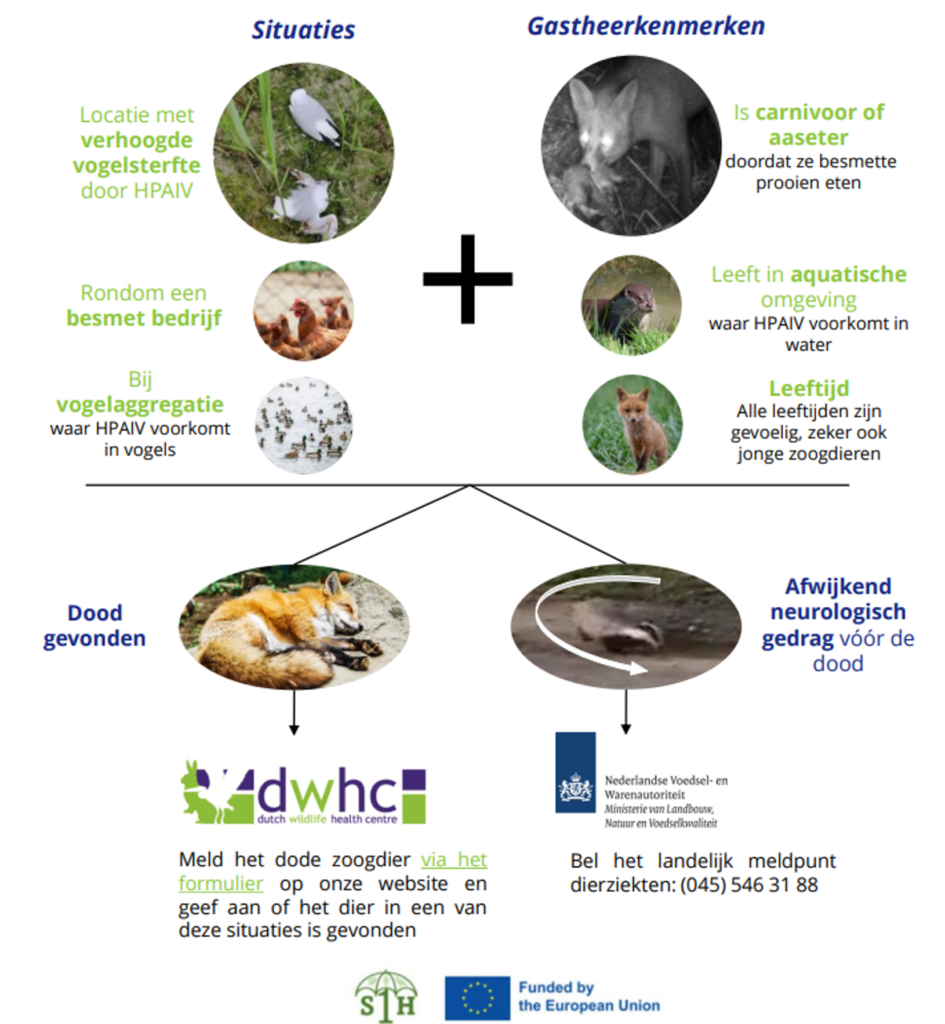

In addition to birds, mammals can also be infected with bird flu. On January 11th, 2025, a fox exhibiting abnormal neurological behavior was found in Hoofddorp. This was reported to the NVWA, after which it tested positive for bird flu.
Carnivores and scavengers can become infected with bird flu by eating infected wild birds. We would like to keep a close eye on this. In addition, monitoring allows us to see whether the virus adapts to a variant that, for example, can spread more easily among mammals or one that is more pathogenic. Therefore we ask for an increased vigilance regarding dead and sick carnivores and scavengers, regardless of their age, especially in areas where bird flu is prevalent, around poultry farms, and in places where many birds congregate (PDF for overview). The areas in which bird flu is found in wild birds are indicated on the NVWA distribution map.

Bird flu is a zoonosis, therefore you should never touch mammals, suspected of having bird flu, with your bare hands. It is important to follow the hygiene measures when handling wild animals suspected of having bird flu: Guideline for dealing with wild animals with bird flu | Report | Rijksoverheid.nl.